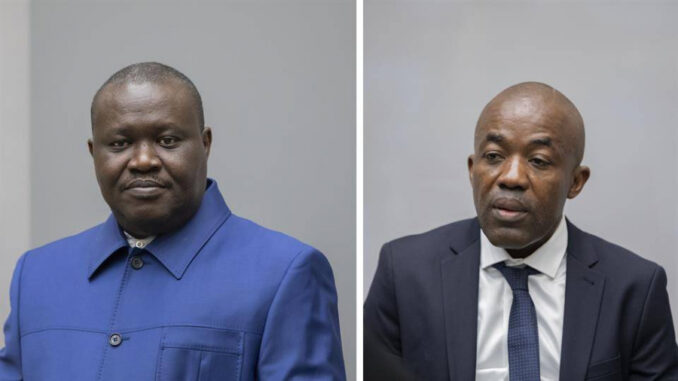
The trial of two Central African Republic militiamen is scheduled to begin February 16 at the International Criminal Court (ICC) in The Hague. Alfred Yekatom Rombhot and Patrice-Edouard Ngaïssona are both accused of crimes against humanity and war crimes committed during the third civil war in the Central African Republic from December 2013 to August 2014.
It all began “in the early morning hours of December 5, 2013,” according to the charges against Patrice-Edouard Ngaïssona and Edouard Yekatom. That morning, “anti-Balaka elements led by Yekatom attacked Boeing’s market in Bangui, specifically targeting Muslim-owned stores and killing between five and thirteen shopkeepers. For the prosecution, the capture of the Central African capital was “a crucial point in the implementation of the strategic plan” of the militia.
Patrice-Edouard Ngaïssona is said to have drawn up this strategic plan with the close circle of François Bozizé during meetings organized in France and Cameroon in particular. “Their objective was to seize or regain power in the Central African Republic,” is stated in the decision confirming the charges against the two accused. In August 2012, the Seleka had carried out their first attacks aimed at overthrowing the power of François Bozizé. In March 2013, the Central African Republic general was overthrown. In exile, he is preparing for his return.
According to the charges, Patrice-Edouard Ngaïssona, a wealthy businessman, would have provided the financing, prepared the attacks, procured the ammunition, and given the orders. But for the prosecutor, the then president of the Central African Football Federation in 2008, like his accomplices, “knew that by mobilizing and using” anti-Balaka self-defense groups, “fueled by revenge and hatred of Muslims because of the atrocities committed by the Seleka,” would violently target the Muslim civilian population. This is what co-accused Alfred Yekatom is doing, who, according to the prosecution, is alleged to have led 3,000 men, including 200 ex-soldiers and officers of the Central African Armed Forces (Faca). The militiamen conduct reprisals during a campaign targeting “the Muslim civilian population, according to the prosecution, on ethnic or religious grounds and perceived to be complicit or close to the Seleka. »
The list of crimes committed by the two defendants is long: murders, forced population transfers, deprivation of liberty, torture, persecution, cruel treatment, mutilation, attack on buildings intended for religion, destruction of property of the adversary, recruitment of children under 15 years of age. Patrice-Edouard Ngaïssona was also prosecuted for rape. The prosecutor also wanted, too belatedly, to add charges of rape and sexual slavery against Alfred Yekatom, but the judges objected.
In the first hearings of the trial, scheduled for February 16-18, the prosecutor will support the evidence he intends to rely on in the coming months. The first witness is expected to testify in mid-March. In total, the prosecution plans to call about 150 witnesses.
The prosecutor had opened an investigation into crimes committed between 2012 and 2014 at the request of the CAR government. Fatou Bensouda had assured from the outset that officials from both sides – anti-Balaka and Seleka – would be prosecuted. On January 24, Mahamat Saïd, commander in the Seleka, was transferred to the ICC prison in The Hague.
